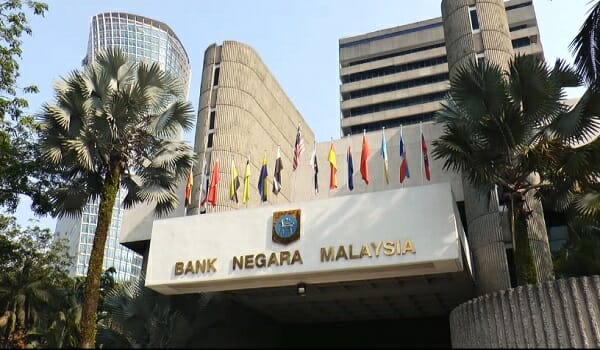Bank Negara Malaysia (BNM) announced yesterday (Mar 20) that its total assets amounted to RM631.26 billion as at 31 December 2023. A net profit after tax of RM7.16 billion was recorded for the financial year, of which RM4.31 billion has been transferred into BNM’s Risk Reserve.
BNM had declared a dividend of RM2.85 billion to the Government for the financial year 2023.
Bose Dasan, a tax and personal finance consultant, welcomed BNMs dividend of RM2.85 billion to the Government for the financial year 2023. However, interest is paid on the government’s invested money and derived from its reserve management.
Bose, who holds an economics degree from the University of Malaya and an MBA from Cranfield, UK, as a layman, said, “Paying dividends to the government is good for increasing government’s funds. With capital resources of RM 600 billion, a RM 7 billion profit turns a return of 1.1 per cent. The inflation is around 3%. So, BNM should give us an inflation-adjusted return on capital. A 7% return in real terms will then be great.”
BNM report noted the Malaysian economy continued to show strength and resilience in 2023. Despite the challenging external environment, GDP grew by 3.7%.
“Amidst the slowdown in the global economy and inflationary pressures domestically, BNM said it had considered and managed the complex policy trade-offs and interdependencies between inflation, growth, and preserving confidence in the ringgit.”
Bose added that anyone holding foreign reserves in USD and SGD would automatically receive a 3 to 4 per cent return. “No details of structural reforms were undertaken. Also, there are no details of what it means by green reforms and social policies and narratives.”
He acknowledged that the temptation to raise interest rates was avoided in the interest of the rakyat, our high domestic borrowing rate, and our low savings.
“I am waiting to read if our currency is restricted and not floating and, therefore, will not readily respond to the demand and supply of Ringgit.
“Therefore, BNM must give confidence in controlling national debt and not increasing the undue money supply, which will depreciate the value of Ringgit. So, where does it forecast the Ringgit will land by the end of the year?”
Nevertheless, Bose commended BNM and said that it must applauded for giving a positive result nominally.
“Although we face an interest rate and inflation rate differential with other countries, we would like to see an appreciation in the Ringgit. A drop and import value hike are small consolations to emphasise the paltry returns vis a vis export value. Again, this is a layman’s point of view,” added Bose, who served in IRB Malaysia for eight years and pioneered financial planning education in Malaysia.
How then do Central banks make a profit?
Central banks typically don’t aim to make a profit like commercial banks or businesses do. Instead, they operate to achieve specific monetary policy goals, such as price stability, full employment, and financial stability. However, they can generate revenue through various means:
1. Interest on Reserves: Central banks earn interest on the reserves that commercial banks hold.
2. Government Securities: They may invest in government securities or other financial assets, earning interest or dividends on these investments.
3. Foreign Exchange Operations: Central banks often engage in foreign exchange operations, buying and selling foreign currencies to manage exchange rates. They can profit or lose from these transactions.
4. Loans and Securities Lending: Some central banks provide loans to financial institutions or engage in securities lending, earning interest income.
5. Gold Reserves: Central banks hold gold reserves, which can appreciate in value over time, providing a source of profit.
6. Payment Services: Central banks may charge fees for payment services they provide to banks and other financial institutions.
Overall, while central banks may generate revenue through these activities, their primary goal is to fulfil their mandate of maintaining price stability and promoting economic growth rather than maximising profit.
The news report was written by Journalist, media coach, adjunct professor and author M. Krishnamoorthy.









